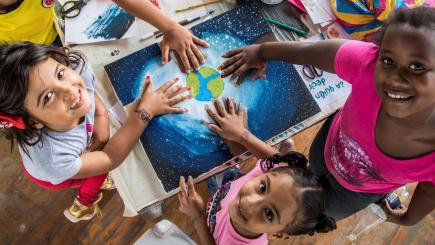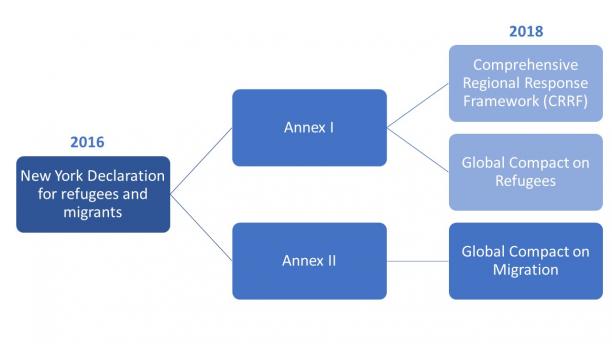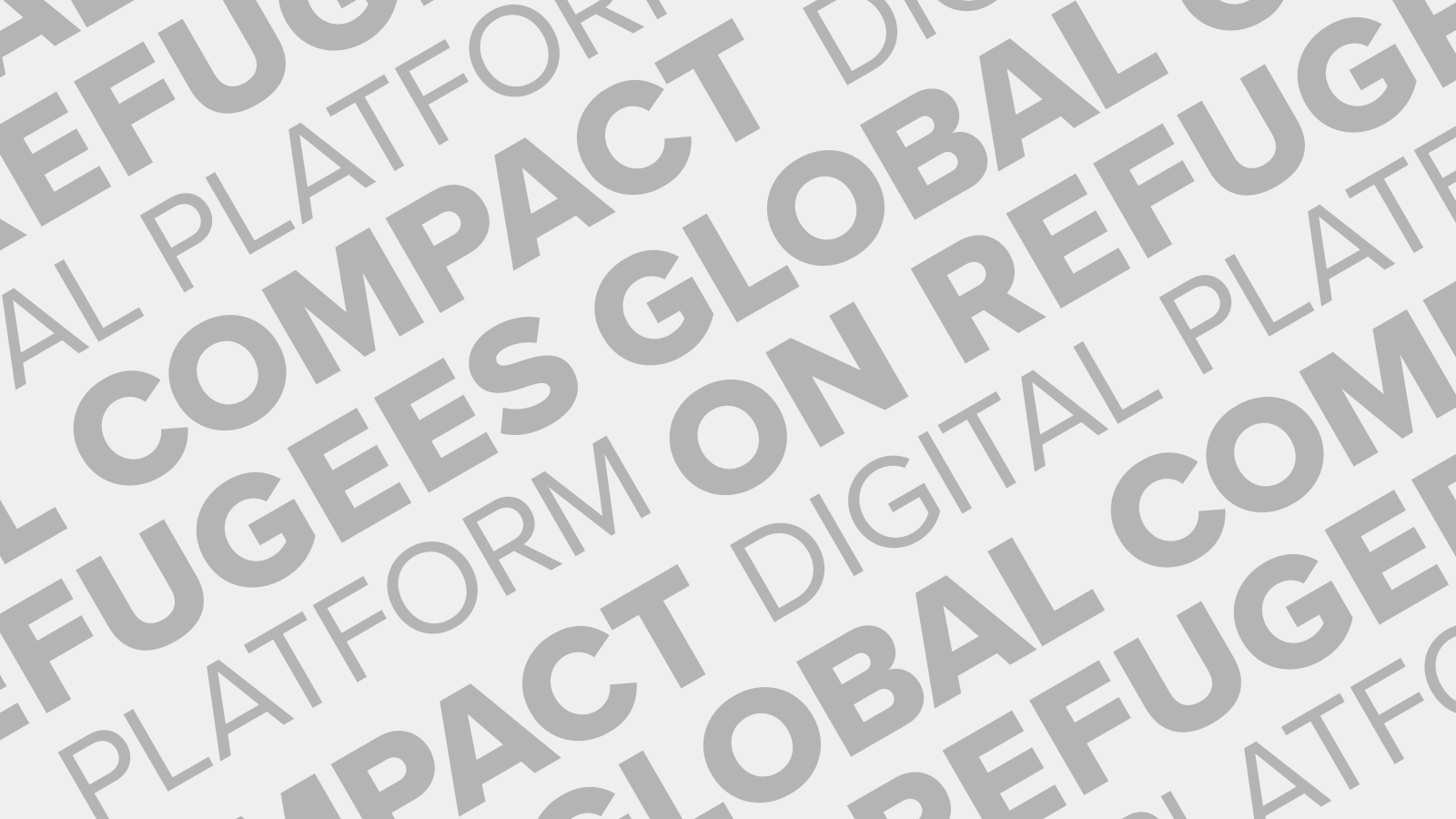
Refugee children from Venezuela join hands with Ecuadorian children as a sign of their trust in a better future, during an art workshop organised by UNHCR in Huaquillas, a city in south-west Ecuador on the border with Peru.
© UNHCR/Jaime Giménez Sánchez de la Blanca
What is the Global Compact on Refugees?
The Global Compact on Refugees (GCR) is a framework for more predictable and equitable responsibility-sharing, recognizing that a sustainable solution to refugee situations cannot be achieved without international cooperation. It provides a blueprint for governments, international organizations, and other stakeholders to ensure that host communities get the support they need and that refugees can lead productive lives.
Its four key objectives are to:
- Ease the pressures on host countries
- Enhance refugee self-reliance
- Expand access to third-country solutions
- Support conditions in countries of origin for return in safety and dignity
How did the Global Compact on Refugees develop?
The New York Declaration for Refugees and Migrants was a milestone for global solidarity and refugee protection at a time of unprecedented displacement. Following its adoption by UN Member States in September 2016, its Annex I – the Comprehensive Refugee Response Framework (CRRF) – was rolled out in more than a dozen countries across the globe.
Concurrently, extensive consultations were led by UNHCR with Member States, international organizations, refugees, civil society, the private sector, and experts, to draw lessons from the application of the CRRF. This two-year process culminated in the affirmation by UN Member States of the Global Compact on Refugees in December 2018.

Global Refugee Forums & High-level meetings
A central arrangement of the GCR is the Global Refugee Forum (GRF), where States and other actors come together every four years to share good practices and contribute with financial support, technical expertise and policy changes to help reach the goals of the Global Compact. Additionally, High-level Officials meetings, held every two years between Forums, will provide an opportunity for mid-term review.
The first Global Refugee Forum took place in December 2019.
Learn more about the GRF and the High-level meetings >
Pledges and Contributions
States and other stakeholders are invited to continue to make concrete pledges and contributions that will achieve tangible benefits for refugees and host communities. UNHCR has established an online system for tracking the implementation of the pledges made, and progress updates are available to view on the pledges and contributions dashboard.
The pledges and contributions dashboard >
Successes, challenges and updates 6-months into the GRF 2019 >
Solidarity in Action: One year on from the Global Refugee Forum >
Good Practices
Sharing good practices helps inspire action towards the GCR. By sharing Good Practices stakeholders demonstrate how to support and find long-term solutions for displaced communities and stateless people. These projects enable knowledge to be shared, learnings to be replicated and collaboration to be enhanced.
See the Good Practice collection >
Support Platforms and other initiatives
The GCR envisions several mechanisms for responsibility-sharing, such as Support Platforms. These initiatives enable regional and context specific support for refugees and host communities.
Learn more about Support Platforms >
Learn more about other GCR initiatives >
The role of the GCR during COVID-19
The GCR and its related commitments made at the GRF can support people forced to flee, as well as their host countries and communities, in the response to the Coronavirus pandemic. States, communities and stakeholders across the globe are standing up to the pandemic in the spirit of the Global Compact on Refugees.



